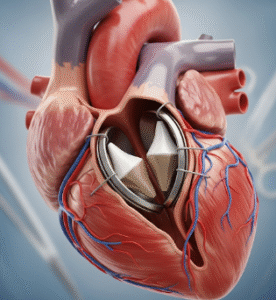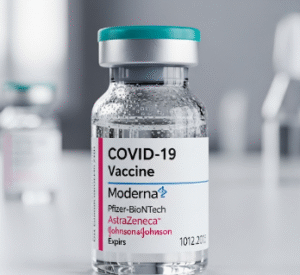Overview
Moon face, also known as moon facies, is a medical term describing a round, puffy facial appearance. It is most commonly associated with prolonged corticosteroid use, Cushing’s syndrome, or other hormonal imbalances affecting fat distribution in the face. The condition results from fat accumulation in the cheeks and jawline, giving a characteristic “full moon” appearance.
In Korea, endocrinology clinics and hospitals provide advanced diagnostic testing and treatment options for moon face, addressing the underlying hormonal disorder and offering supportive care to reduce facial swelling and improve cosmetic outcomes.
Key Facts
➤ Moon face is characterized by a round, swollen face with prominent cheeks.
➤ Often caused by Cushing’s syndrome, long-term steroid therapy, or hormonal imbalances.
➤ Can be accompanied by weight gain, skin changes, and fat redistribution.
➤ Early diagnosis and treatment of underlying conditions can reverse facial changes.
➤ In Korea, endocrine and cosmetic specialists provide comprehensive care.
What is Moon Face?
Moon face is a physical manifestation of fat redistribution, where excess adipose tissue accumulates in the face due to hormonal dysregulation. The condition is most frequently linked to elevated cortisol levels, either from internal overproduction (Cushing’s syndrome) or external sources (prolonged corticosteroid use).
Symptoms Related to Moon Face
Moon face may present with:
➔ Round, full cheeks giving a “moon-like” appearance.
➔ Swollen jawline and sometimes neck puffiness.
➔ Weight gain concentrated in the upper body.
➔ Thin arms and legs due to fat redistribution.
➔ Acne, facial redness, or stretch marks (in steroid-related cases).
➔ Occasionally, hirsutism or excess facial hair in women.
Causes / Possible Causes
Moon face is primarily caused by hormonal changes that alter fat distribution and water retention:
Endogenous Causes
➤ Cushing’s syndrome – overproduction of cortisol by adrenal glands.
➤ Pituitary adenomas leading to excess ACTH.
Exogenous Causes
➤ Long-term use of oral or systemic corticosteroids (e.g., prednisone).
Other Contributing Factors
➤ Obesity or metabolic syndrome.
➤ Polycystic ovary syndrome (PCOS) in some women.
➤ Certain medications affecting hormones or fluid retention.
Risk Factors
➤ Prolonged corticosteroid therapy for autoimmune or inflammatory conditions.
➤ Disorders causing excess cortisol.
➤ Women may be more prone due to hormonal fluctuations.
➤ Older adults or patients with metabolic syndrome.
Complications
While moon face itself is primarily cosmetic, associated conditions may pose health risks:
➤ Cushing’s syndrome – risk of diabetes, hypertension, osteoporosis.
➤ Increased susceptibility to infection due to immunosuppressive therapy.
➤ Psychological impact due to altered appearance.
➤ Fat redistribution may contribute to metabolic complications.
When Should I See My Doctor?
Consult a doctor if:
➤ You notice rapid facial swelling or roundness.
➤ Accompanied by weight gain, abdominal fat accumulation, or skin changes.
➤ On long-term corticosteroid therapy and notice changes in facial appearance.
➤ Experiencing other signs of hormonal imbalance (high blood pressure, fatigue, muscle weakness).
Early evaluation helps identify the underlying cause and prevent further complications.
Care and Treatment
Treatment focuses on addressing the underlying hormonal disorder and managing symptoms:
Medical Management
➤ Adjust or taper corticosteroid use under physician guidance.
➤ Treat Cushing’s syndrome via surgery, radiation, or medication to reduce cortisol.
➤ Manage metabolic complications like high blood sugar or blood pressure.
Lifestyle Approaches
➤ Maintain healthy diet and avoid excessive salt intake.
➤ Regular exercise to reduce overall body fat.
➤ Skincare routines to manage acne or skin irritation.
Psychological Support
➤ Counseling for self-esteem or body image concerns.
➤ Support groups for patients on long-term steroid therapy.
Treatment Options in Korea
Korea offers advanced endocrine and cosmetic care for moon face through hospitals and specialized clinics:
Diagnostic Services
➤ Blood tests for cortisol, ACTH, and other hormone levels.
➤ Imaging studies – CT or MRI for adrenal or pituitary evaluation.
➤ Metabolic assessments for glucose and lipid management.
Medical and Surgical Treatments
➤ Endocrinology intervention to treat Cushing’s syndrome or steroid-induced changes.
➤ Medication adjustments under close monitoring.
➤ Cosmetic consultation for facial contouring or supportive therapy if needed.
Supportive Care
➤ Nutrition counseling for weight management.
➤ Exercise programs tailored for patients on steroids.
➤ Psychological support to address emotional impact of facial changes.













